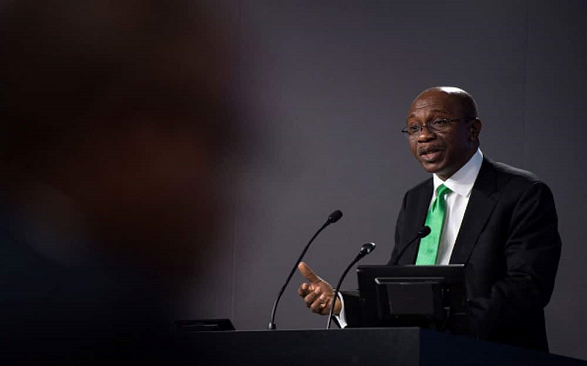Introduction
Nigeria’s blockchain association and one of the leading communities in the country’s emerging blockchain & crypto industry, the Stakeholders in Blockchain Association of Nigeria (SiBAN), on Saturday 5 February 2022, launched ‘Crypto is Legit‘. Crypto is Legit is a campaign advocating crypto regulation in the country, on the basis that, “crypto is legit”, and consequently should not be banned or restricted.
It can be recalled that exactly one year ago—on 5 February 2021—the Central Bank of Nigeria (CBN) released a statement restricting deposit banks and other financial institutions, which fall under the regulatory purview of the CBN, from facilitating crypto-related transactions. Since then however, the CBN as well as other relevant regulators, have failed to provide a friendly environment for users to participate in the emerging industry.
SiBAN’s publication on 5th February 2022, as published under the office of the SiBAN President, reads:
Our Message on the 1st Anniversary of the CBN Directive on Cryptocurrency in Nigeria
“Today, 5 February 2022, marks the 1st anniversary of the Central Bank of Nigeria’s (CBN) restriction of cryptocurrency in Nigeria’s banking and financial system.
Crypto is legit.
What is illegit is lack of crypto regulation in the face of continued growth in crypto adoption, whether as a means of investments or medium of exchange. Crypto adoption can benefit from consumer protection and investment safety that regulation brings.
Today we advocate crypto regulation, not ban or restriction against crypto innovation in Nigeria, whether crypto products or services.
Today we advocate equal access to banking and financial services by virtual asset service providers (VASPs) without discrimination in accordance with the Nigerian Constitution, applicable laws, and particularly Nigerian laws on anti-money laundering and combating the financing of terrorism (AML/CFT) regulations. Amongst other benefits, this approach will aid investigations by our law enforcement agencies, including the Nigeria Police and the Economic and Financial Crimes Commission (EFCC).
“Today we advocate innovative and inclusive crypto regulation by all relevant regulators, including the Central Bank of Nigeria (CBN) and the Securities and Exchange Commission (SEC), in accordance with their statutory duties under the laws of the Federal Republic of Nigeria.
“Today we call on the Ministry of Finance, the Ministry of Trade and Investments, and the Ministry of Communications and the Digital Economy in Nigeria to engage and align on crypto regulation in order to open up a window of opportunities for both the nation and its people.
“Today, pending substantive regulation by the National Assembly, we advocate the adoption of AML/CFT compliance by banks and other financial institutions for VASPs in Nigeria. This was CBN’s policy—as stated in its 12 January 2017 circular—before the circular of 5 February 2022.
“We are responsible stakeholders, not bad actors. Regulators should adopt a regulatory approach that encourages innovation while discouraging bad actors, not all actors. While concerned about the risks often associated with crypto, the role of regulation is not to make risks disappear but manage them in accordance with global best practices and in collaboration with all concerned stakeholders, including industry players. We also care about consumer protection, investment safety, and a safe and sound financial system. No regulator in the world can do this alone. We volunteer help.
“As we continue to encourage actors in the space to ‘crypto responsibly’, we also call on our regulators to ‘regulate responsibly’ in Nigeria’s best interest in today’s digital and increasingly decentralized economy.
“Together, let’s secure Nigeria’s best interest in the global crypto economy.

SiBAN calls on stakeholders to support 'Crypto is Legit'
SiBAN called on members, other concerned stakeholders in the industry, as well as members of the public to support the ‘Crypto is Legit‘ campaign, using the tweets published on their website:
“While you have the liberty to come up with yours and we welcome it, below are 12 tweets or posts that you may use in order to get the message out there on this occasion of the 1st anniversary of the CBN circular on cryptocurrency”.
Of the 12 messages meant for the tweets or post on social media, below are some of the tweets:
Tweet 1
Crypto is a technological innovation. Rather than restrict or ban, regulators should regulate it to keep bad actors from the emerging space. CBN lift crypto restriction. Embrace regulation. #regulatecryptonotban #cbnliftcryprestriction #cryptoislegit #Cbncrypto1stanniversary
Tweet 3
Crypto is mainly an asset—a security, commodity, or derivative, depending on what the crypto asset is used for. This is where Nigeria SEC comes in, not CBN. SEC regulate cryptoassets. #regulatecryptonotban #cbnliftcryprestriction #cryptoislegit #Cbncrypto1stanniversary
Tweet 4
Banning or restricting crypto is not the answer. AML/CFT compliance for Virtual Asset Service Providers (VASPs) is the solution, consistent with global best practices in crypto regulation. #regulatecryptonotban #cbnliftcryprestriction #cryptoislegit #Cbncrypto1stanniversary
Tweet 5
Before the CBN restriction, crypto exchanges collect user KYC and assist Nigeria Police and EFCC with investigations. On 5 Feb 2021, CBN suspended AML/CFT compliance, a serious risk to Nigeria. #regulatecryptonotban #cbnliftcryprestriction #cryptoislegit #Cbncrypto1stanniversary
Tweet 8
CBN, please withdraw your 5 February 2021 circular, and allow banks and other financial institutions to apply AML/CFT regulations in accordance with Nigerian laws. This is the lawful thing to do. #regulatecryptonotban #cbnliftcryprestriction #cryptoislegit #Cbncrypto1stanniversary
Tweet 9
Crypto is not the problem. Lack of crypto regulation is. Regulate crypto in Nigeria, not ban; not restrict. Regulation is the right thing to do. Engage all stakeholders. #regulatecryptonotban #cbnliftcryprestriction #cryptoislegit #Cbncrypto1stanniversary
Tweet 10
What we need in Nigeria’s crypto space is engagement, not estrangement. What we need is openness, not opacity. What we need is vision, not myopia. We need courage, not fear. Regulate crypto #regulatecryptonotban #cbnliftcryprestriction #cryptoislegit #Cbncrypto1stanniversary
Tweet 11
The NASS, EFFC, Nigeria Police, NDIC, NITDA, NIA, FIRS, FCCPA, and other relevant stakeholders should not leave crypto regulation to CBN and SEC alone. Time for an open national conversation. #regulatecryptonotban #cbnliftcryprestriction #cryptoislegit #Cbncrypto1stanniversary
Tweet 12
We are not unaware of the risks and threats associated with crypto. But we are also aware of the strengths and opportunities. This is why crypto regulation is the best answer. #regulatecryptonotban #cbnliftcryprestriction #cryptoislegit #Cbncrypto1stanniversary”. End of quote.
After one year in the crypto jungle, what next for Nigeria?
After exactly one year of restricting cryptocurrencies in Nigeria’s banking and financial system, it is not clear what the achievement has been for Nigeria’s financial system. No public information is available to enable members of the public consider the gains and the losses in the last 365 days.
But if the general view of players in Nigeria’s emerging blockchain & cryptocurrency industry is anything to go by, it appears that while crypto adoption has significantly grown in Nigeria since the CBN circular, the Nigerian economy may not be benefitting from it due to the current resistance. As far as these players are concerned, what Nigeria needs is leverage blockchain & crypto adoption to create new opportunities for its people, a thing that Nigerian regulators are yet to do or at least are not presently interested in.
But why?, many continue to ask.
According to regulators, particularly the CBN, cryptocurrency is predominantly used for perpetuating criminal activities, including money laundering and terrorism financing, therefore they are unhealthy for a safe and sound financial system. Whether this is fact, myth, or both remains arguable. And with the eNaira being promoted by the CBN as the digital currency to trust, it is expected in various quarters that the CBN may not be in any particular hurry to regulate crypto, except crypto regulation in the country is given an inter-agency approach.
Will both innovators and regulators meet somewhere in the middle? Time will tell.
Discover more from Crypto Asset Buyer
Subscribe to get the latest posts sent to your email.



